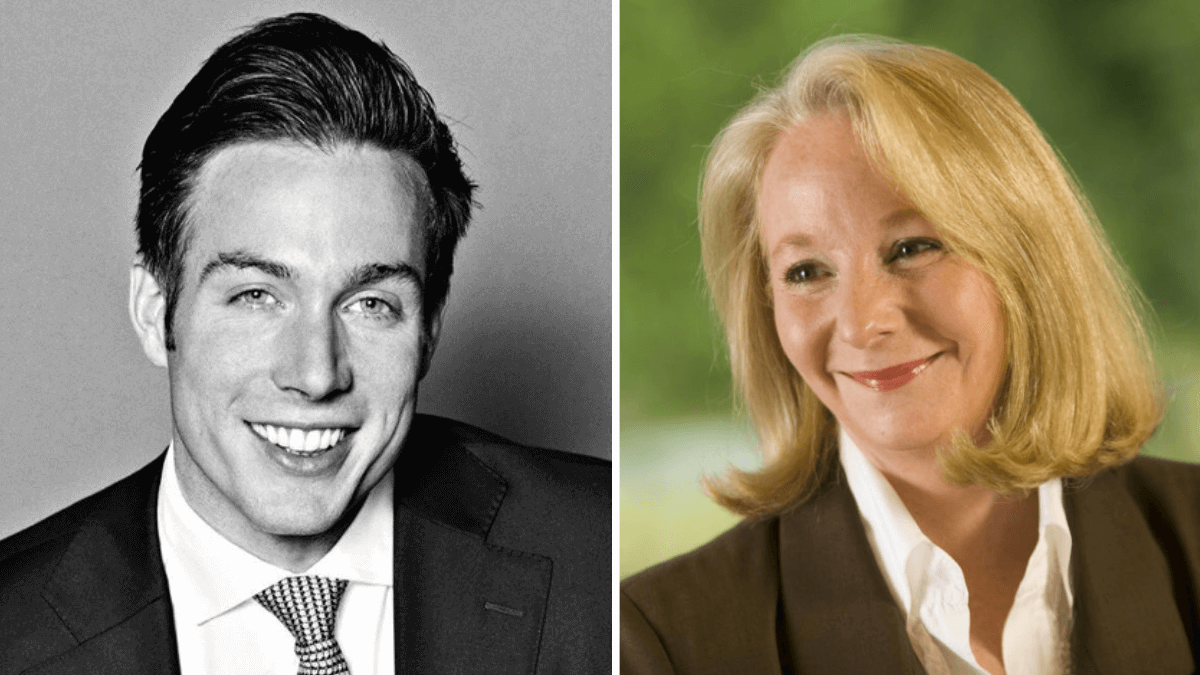Marty Wikstrom speaks with Sam Tidswell-Norrish as he joins Web Foundation board and launches Future Leaders Council
We are pleased to announce that Sam Tidswell-Norrish, Principal at Motive Partners and Vice-Chair of 20:40, has joined the Web Foundation board.

We are pleased to announce that Sam Tidswell-Norrish, Principal at Motive Partners and Vice-Chair of 20:40, has joined the Web Foundation board.
Sitting board member and international business leader Marty Wikstrom spoke with Sam about digital equality, the power of “unlikeminded individuals” and his mission to connect future leaders for positive change through the 20:40 community.
Welcome, to the board Sam. Tell us about what sparked your interest in the Web Foundation’s work.
When Sir Tim Berners-Lee invented the web, he changed the world, I believe overwhelmingly for the better. But it’s not perfect. Some people and corporations are misusing it, and individuals who don’t have internet access are enormously disadvantaged. To be involved in the effort to channel the power of the web for good and to put it in the hands of many, is something I’m tremendously honored to be a part of and I look forward to playing my small part.
We’re very glad to have you!
One of the projects you’ve been working on is 20:40. What is it and what do you hope to achieve?
We created 20:40 as a community to create opportunities through relationships. We have a fundamental belief that bringing together likeminded — and unlikeminded — individuals who are at an early stage in their career will create compounded collaboration, energy and positive change.
We started with 32 founding members which, between them, have 496 relationships. Last night we welcomed the next cohort of 50 people, creating a total of 3,321 connections. Soon we’ll scale to 500, with 124,750 unique relationships.
The people involved in the community are incredible and by 2040 they really will be leaders in business, politics, the arts and social movements. The opportunity for these relationships to create positive change is extraordinary. 20:40 exists to nurture and point that potential in the right direction.
You mention ‘unlikeminded’ individuals — why is that important to 20:40?
Our members share a positive, ambitious outlook and desire to be part of something greater. But when it comes to backgrounds, skills and experiences, we encourage difference. The more we have people with different perspectives connecting and working together, the better. That will help ensure we make change in a thoughtful way that works for more people.
That’s such an important point. In my experience as a business leader, I’ve found that the best teams are usually those that are most diverse.
Last night at the welcome event for the next 20:40 cohort, we announced the Future Leaders Council. How do you see this evolving?
As you and I have spoken about Marty, it’s critical that the next generation is not only able to benefit from technology, but is engaged in shaping the future of tech. Technology will be a critical tool for future leaders as they tackle urgent challenges that have built up over the last several generations and young people need to be involved now in decisions that will shape this tech.
To help give this generation a greater voice in these debates and in the work of the Web Foundation, we have set up the Future Leaders Council. In the coming weeks we will appoint twelve 20:40 members to sit on this council and together define a work plan that engages communities of young people around issues of responsible tech and supports the Web Foundation’s core objectives of expanding internet access and tackling digital gender inequality.
We’ll have more to share once the council has been appointed and build an agenda — so watch this space!
Talk more about the great issues that future leaders face and how technology can play a role.
The next generation of leaders face enormous challenges, from Covid-19 and its long-term impact, to social and economic inequality through to climate change. But digital technologies provide huge opportunities to make things better and I’m optimistic about the progress we can make if we put in the right processes, frameworks and intent behind our action. The Web Foundation’s Contract for the Web is a good example.
Right now, I’m thinking a lot about the coming ‘livelihood crisis’. 85 million jobs are expected to be fully automated in the next 5 years. We need to think now about how best to equip people with tech skills to help them adapt and retrain for new jobs that will emerge. The web must be a critical part of that plan and so universal internet access and skills are clearly a top priority. Governments and companies need to think hyper proactively about how to make that happen.
That’s certainly a message I’m sending loud and clear in the companies I advise.
In their annual letter, Tim and Rosemary warned there are still huge digital divides. Are you worried about the web as a driver of inequality?
I’m deeply worried about digital inequality and how this limits the web’s potential to help overcome some of the challenges we’ve talked about.
Access to the web has never been more important. It helped so many young people continue their education during the pandemic. But the number without meaningful access is frightening. 2.2 billion young people without access to the internet at home at the time they need it most — that’s a huge portion of our global population.
Then there’s the digital gender divide. When people get online, too often they are confronted with misinformation, dangerous content and abuse, with women and girls disproportionately at risk. UN women found that women are 27x more likely to be harassed online than men. This is especially true for those targeted on the basis of their sexuality, religion, abilities or race. According to an Amnesty study, Black women journalists and politicians in the US and UK are 84% more likely to be the target of hate speech online. This is totally unacceptable.
The Web Foundation is taking on these injustices and refusing to accept the web as it is. The work of the foundation, and many others working in this space, fills me with optimism that we can successfully fight for a web that works better for us all.
Sir Tim and Rosemary have been such an inspiration to me over many years in their core belief that when things aren’t working, we can work together to change them. I’m honoured to support their mission at the Web Foundation and through 20:40 and the Future Leaders Council.
Any final words of advice you would give to young people starting out in the working world who want to have a positive social impact?
Careers are a team sport. Find communities of people who share the same goals as you and work together to make them happen.
Thanks Sam, great talking with you.
Thanks Marty, let’s keep the conversation going.
For more updates, follow us on Twitter at @webfoundation and sign up to receive our newsletter.
To receive a weekly news brief on the most important stories in tech, subscribe to The Web This Week.
Tim Berners-Lee, our co-founder, gave the web to the world for free, but fighting for it comes at a cost. Please support our work to build a safe, empowering web for everyone.





































